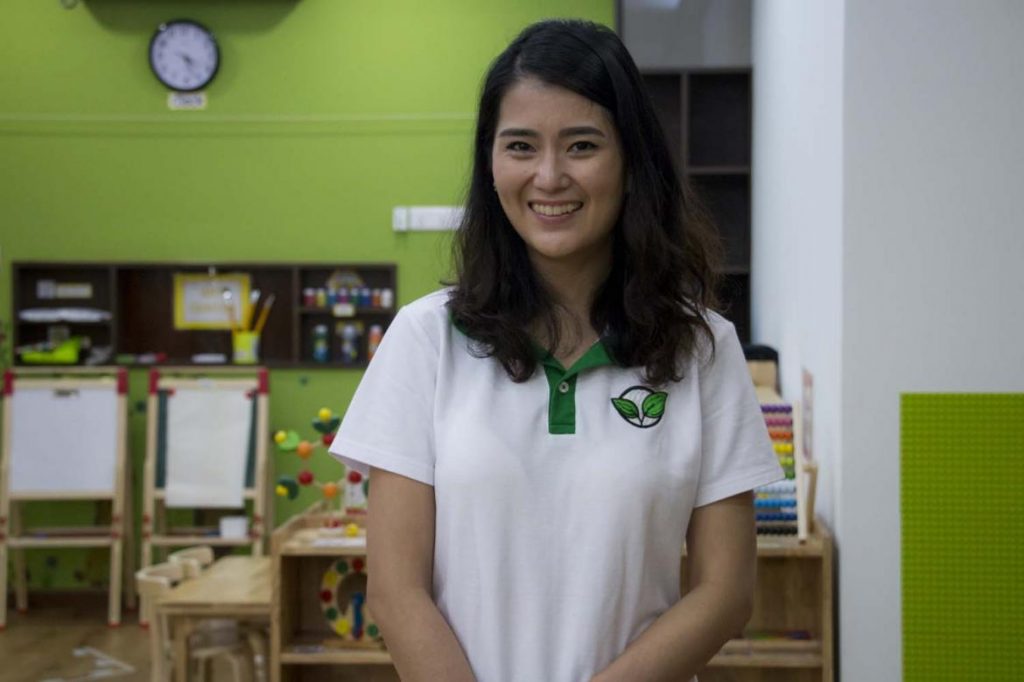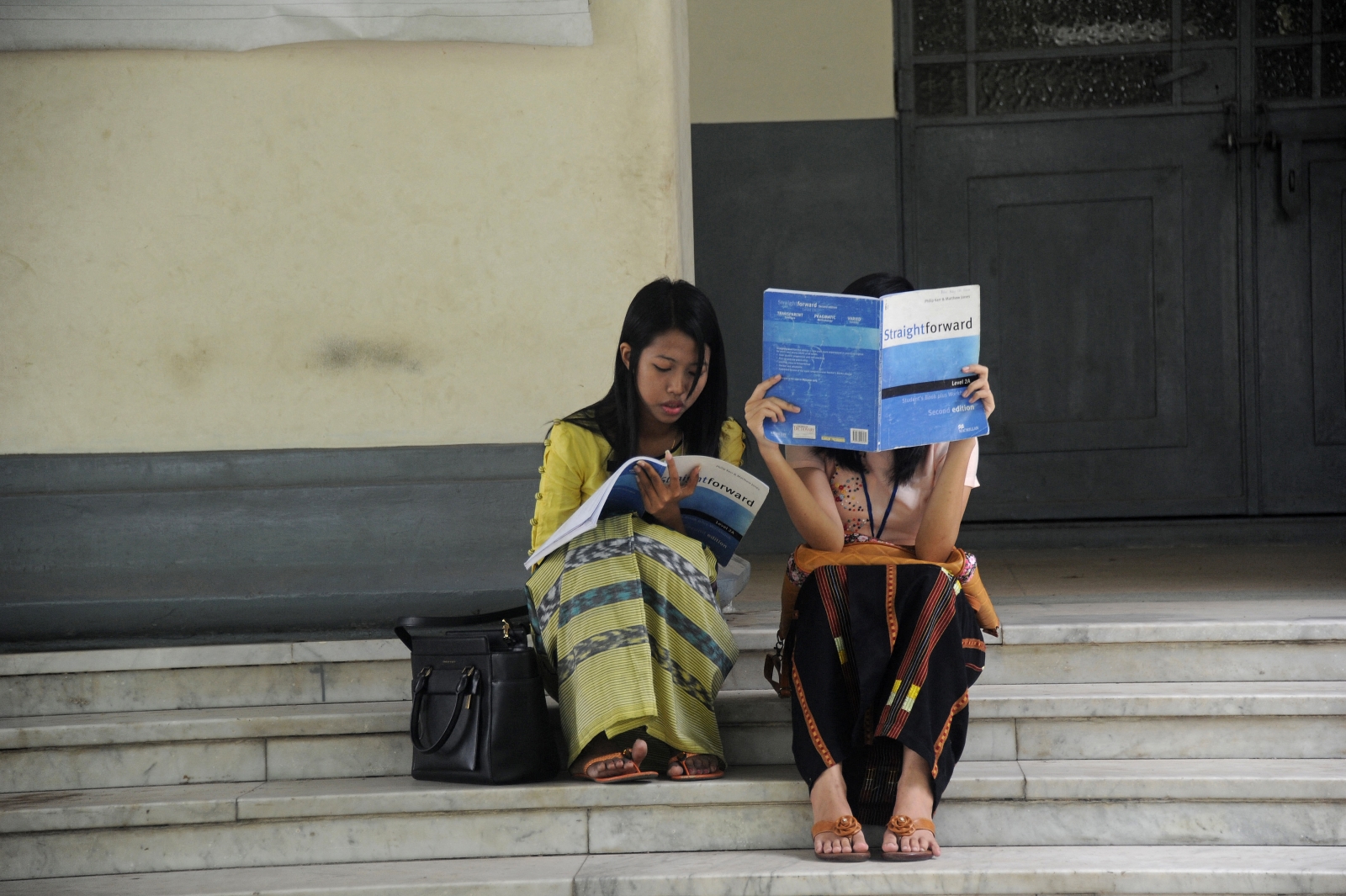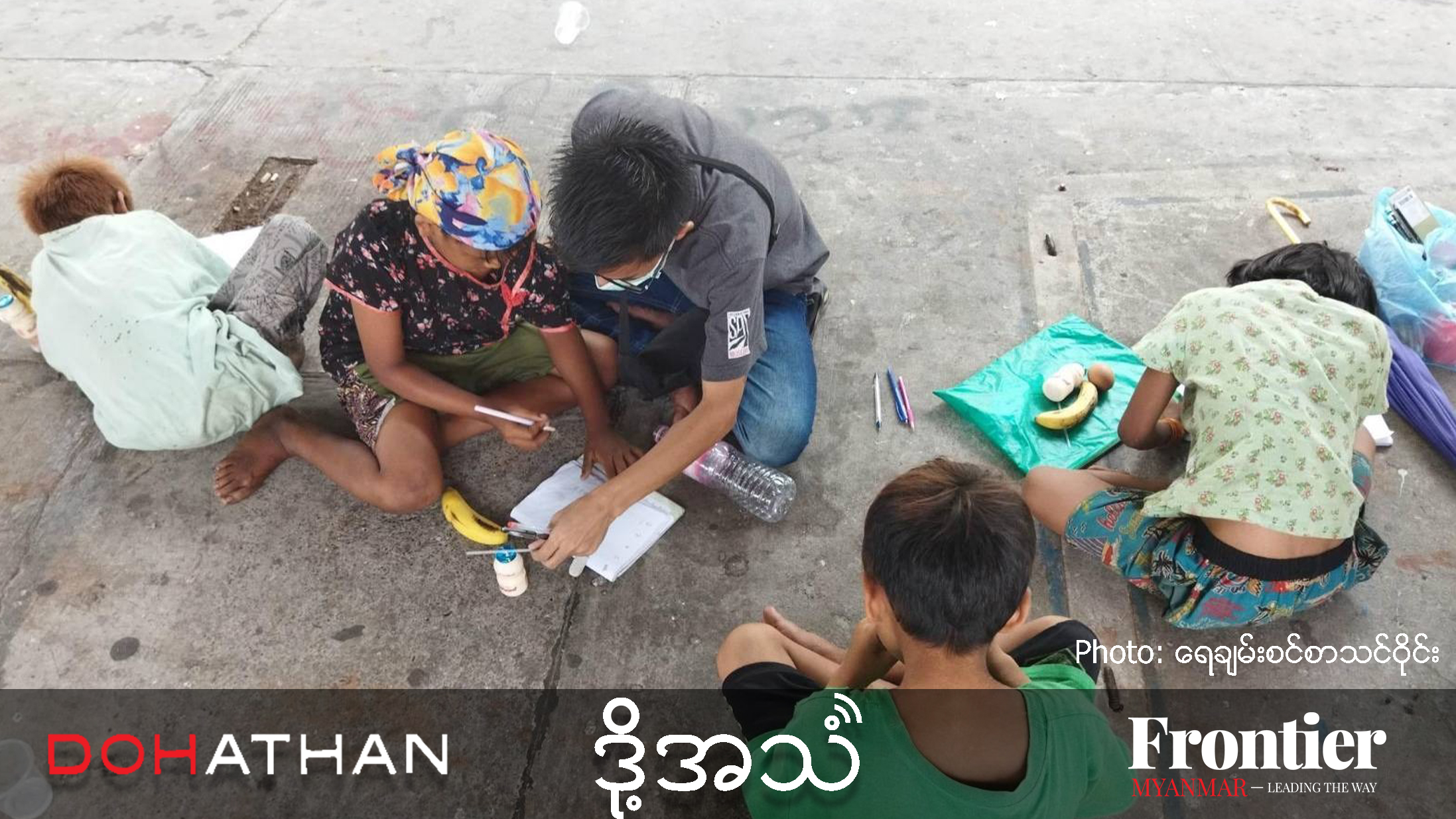Daw Angela May Pan Oo completed a Master in Early Childhood Education at Columbia University in New York in 2015 before returning to Myanmar and establishing Central Park Preschool in Yankin Township.
She tells Frontier about her experience as a teacher in the United States, the government’s focus on early childhood development and how parents can prepare their children for preschool.
What inspired you to start a preschool in Yangon?
When I was teaching in New York, I was fascinated by how much the schools were able to empower their students at an early age. Even at the preschool level, students were treated with respect, listened to, and encouraged to pursue their interests. The role of the teacher was to facilitate, rather than to dictate, their students’ learning. As a result, students can grow into confident and creative individuals. I came back home with the hope of providing a similar kind of education here in Myanmar.
What were the main challenges in setting up a preschool in Yangon?
The biggest challenge was finding the right teachers. Our approach is very detail-oriented and requires a wide range of skills. Not only do the teachers need to be qualified and experienced, they must have the right attitude and the willingness to learn. After going through dozens of candidates, I am glad to say that we have finally found the right teachers who can help us fulfill our vision.
What’s the teaching philosophy at Central Park?
We provide a progressive education to children between two to five years of age. We combined the strengths of both the Montessori and the Reggio Emilia education principles to create an emergent, project-based curriculum. Each semester, children carry out a hands-on, in-depth investigation of a topic of their interest. Through these investigations, children develop skill sets that will benefit them not only at school but also in life.
Education reform has been a major priority since 2011. Is the government on the right track?
The government’s plan to make preschools more accessible is a big step in the right direction. Preschool education provides a great foundation for kindergarten and continued academic success. Likewise, the incorporation of problem-solving, critical thinking, and creativity into the new curriculum is also very promising. I also look forward to seeing more teacher training and capacity building programs to be implemented.
When is a child ready for pre school? Are there signs that parents can look for?
Support more independent journalism like this. Sign up to be a Frontier member.
Parents should look at whether or not their child has already developed some self-help skills. Or can he at least communicate his basic needs? He should be able to work on a task independently and with others for an extended period of time. Being able to follow simple instructions is another important skill to have before entering preschool. Additionally, parents may want to observe whether their child can regulate his emotions positively when in distress.
How can parents prepare their children for the transition to pre school?
Parents may want to start introducing a routine at home, preferably similar to that of a preschool. This will help children anticipate what is to come and will ease their anxiety. They may also incorporate some classroom rules into their homes. Last but not least, explain to them about how their day is going to change and address any concerns they may have.
Why is preschool important for a child’s development?
Preschool is very important for a child’s social and emotional development. In a preschool, children will learn how to compromise, be respectful towards others, and solve conflicts. Through the process, they will gain a sense of self and discover what they are capable of. They will learn how to do small tasks like pouring their own juice as well as bigger issues like deciding how they want to spend their free-play time. When doing such activities, they are also developing their physical and cognitive skills.







